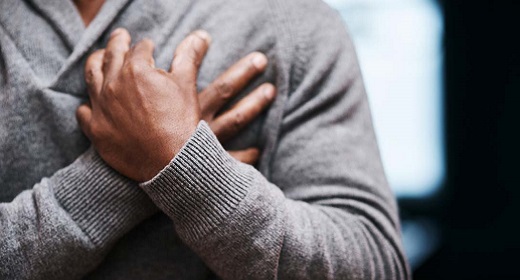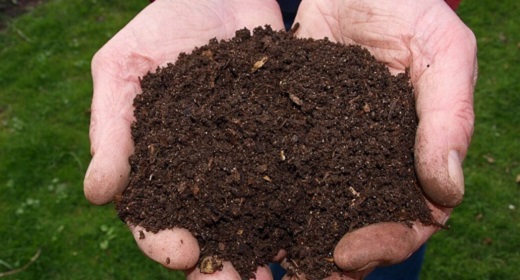Food Revolution Network CEO, Ocean Robbins, sits down with retired doctor and public health official Terry Mason, MD, for a fascinating conversation about racism, food, health, COVID-19, and hope…
FROM THE FOUNDER OF AWAKEN.COM –
We are proud to announce a new partnership with John and Ocean Robbins and the Food Revolution to bring our readers Summits, Seminars and Masterclasses on health, nutrition and Earth-Conscious living
Sign up today for Plant Powered and Thriving
Ocean Robbins: I am so excited for this conversation with Dr. Terry Mason. We’re going to be looking at food and health and you. We’re going to be looking at the inequities of health opportunity and access in our world today, and, more importantly, what we can do about it, so we can have healthy, ethical, and sustainable food for all.
Dr. Terry Mason is a retired urologist and public health official who champions holistic approaches to health management. He serves as the CEO of Trevention Incorporated. That’s Trevention — as in treatment and prevention. Trevention seeks to combine treatment and prevention and to reduce the burden of chronic disease through education and empowerment.
Dr. Mason has been responsible for leading public health programs and services for one of the nation’s largest metropolitan health departments. He shares his holistic approach to health as an internationally recognized health educator and an inspirational speaker, and also on his popular radio show, which is on WVON 1690AM. It’s called “The Doctor in the House.” He’s been doing it for more than 21 years. And Terry is a champion of helping bring health education, and nutritional awareness, and opportunity, and access into all of the communities that need it the most.
Terry, thanks so much for being here with us today.
Dr. Terry Mason: You are so welcome, and I’m grateful to be here.
From a Steak a Day & a Blocked Artery …
Ocean Robbins: So, you practiced urology for more than a quarter-century in Chicago. And for most of that time, I gather, you were someone who literally ate a steak a day. Is this true?
Dr. Terry Mason: That is correct.
Ocean Robbins: But something happened, through your own practice of urology, that shifted your eating habits. Can you tell us about how that unfolded?
Dr. Terry Mason: Well, as you properly noted… I ate a steak a day. I loved Porterhouse and T-bone. And I had my butcher cut them and individually wrap them, so I had one for every day. And, obviously, the stresses of residency, and I was hypertensive already… What happened was I was on a treadmill trying to work out and ended up with chest pain. I called my cardiologist from the treadmill and met him at the hospital. Next thing I knew, I was on the cardiac cath tape, and he had discovered a significant blockage in a major artery.
And while he had the catheter in my artery, in my heart, and he was going to do a balloon angioplasty, I was trying to negotiate with him to let me come off of the table. I wanted to go out to Sausalito, California, where Dean Ornish had his program. I had been out to see Dean before. And I said, “Look, I’d really like to do this instead of that.” He says, “No, I got you on the table. I can’t let you get off this table and get on a plane, not knowing what might happen.” So that ended that conversation. I ended up with a stent.
… to Zero Animal Products & Low Cholesterol Levels
Dr. Terry Mason: So then he said, “But you’re going to have to take this drug for the rest of your life, this statin.” And I said, “No, I’m not going to take it.” And he said, “Why?” I said, “Because I know what that does to your muscle tissue. I’m not going to take that medication.” And I said, “But here’s what I will do. I will promise you that I won’t put anything in my mouth that contains any cholesterol or bad saturated fat. And I will come to your office every month for you to verify my results with a lab test.” And that’s what happened.
Ocean Robbins: What happened then? What happened to the lab test? What happened to your heart?
If we eat the right food, we could never need medicine. So the food is really a self-correcting agent. That is the only thing that we have that actually works on the cause of our problem and not just manages a complication.
Dr. Terry Mason
Dr. Terry Mason: Well, I get checkups from time to time. Everything is fine. I’m still checking my cholesterols because I promised him I would. And they’re always very, very low. And I haven’t had any animal or dairy products since that time. And that’s been over, maybe, 15 years ago or more.
Ocean Robbins: So you’ve had a very direct, personal experience with the power of food.
Dr. Terry Mason: If we eat the right food, we could never need medicine. So the food is really a self-correcting agent. That is the only thing that we have that actually works on the cause of our problem and not just manages a complication.
Health Disparities in America
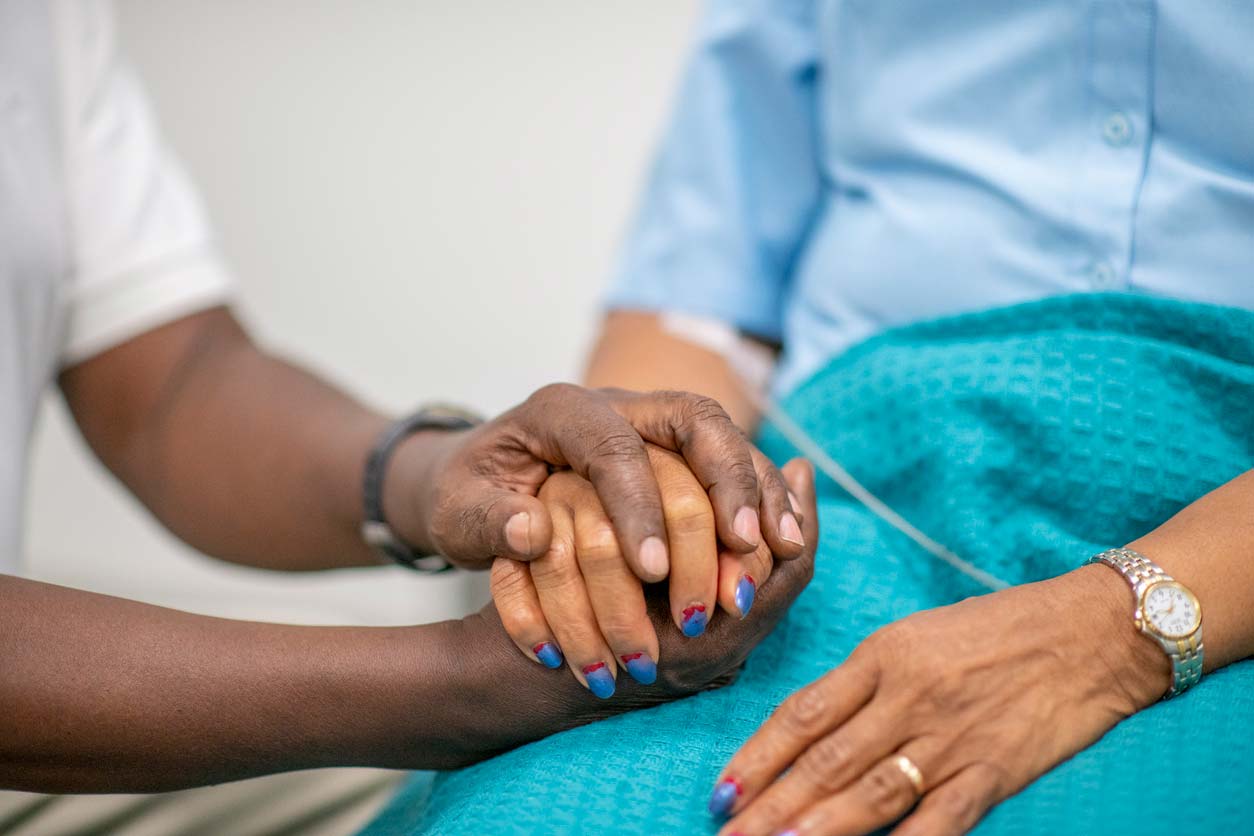
Ocean Robbins: The CDC recently came out with a report telling us that in the first half of 2020, life expectancy in the US dropped by a year, overall. But among the Black population, it actually dropped quite a bit more than that. By 2.7 years, in fact. In one year, it fell down to 72 years, as compared to 77.8 years for the population overall. So there’s a life expectancy gap of almost six years, along race lines, right there. And everyone, of course, is struggling. But Black people, a lot more.
We know that Black Americans are hospitalized with COVID-19 at about 2.9 times the rate of white Americans and die at about 1.9 times the rate. The CDC is saying that the primary reason for the drop in life expectancy is COVID-19 related. But it’s not impacting everybody equally. So, from your perspective, what are the core causes of this inequality?
Dr. Terry Mason: Sure, the health outcomes have always been disparate. The economic outcomes have been disparate. The opportunities for professional placement are disparate. I did a lot of work in the areas of disparities. And I had a slide at the beginning of my presentation that asked the question, “Why do racial disparities exist?” And then, in nice big, bold letters, “Because they’re supposed to.”
And people would ask, “Well, why do you say that?” I said, well, you don’t do need to do more than a cursory review of the history of America to understand that we were different, and we were disparate, from the beginning of our association with the people who are the arbiters of slavery and everything else. So why would you expect that it’d be a difference?
I did some conversations around what we were fed as we were people that had to work these fields. And many of us developed things like beriberi and scurvy and things of that nature because we were just given cornmeal and bacon.
Ocean Robbins: Yeah.
Dr. Terry Mason: And when you saw the lynchings and all the other things, not just of African-Americans, but what happened to the indigenous people here who were actually taken off their land by force and massacred. So these disparities exist because of the history of this country. And the way people have been treated, not just in the last 10 or 15 years, but over 400 years.
Ocean Robbins: Yeah. So it’s not by accident. It’s functionally by design that we have these, the enormous disparity and opportunity and resource and access and in health outcome, that so often plays out along lines of race.
Uplifting Health, Opportunity, & Knowledge
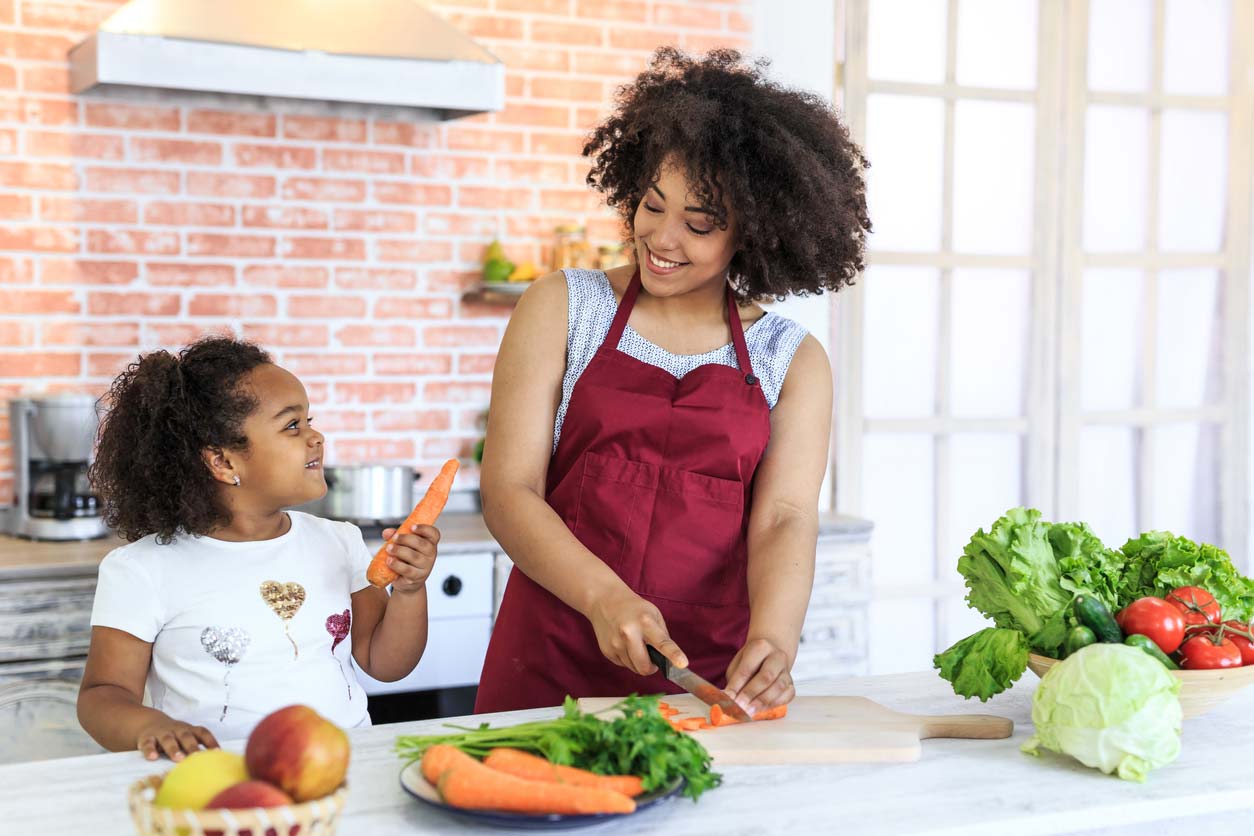
FROM THE FOUNDER OF AWAKEN.COM –
We are proud to announce a new partnership with John and Ocean Robbins and the Food Revolution to bring our readers Summits, Seminars and Masterclasses on health, nutrition and Earth-Conscious living
Sign up today for Plant Powered and Thriving
Ocean Robbins: At the same time, there are some of us who would like to change that with whatever resources we have, whatever opportunities we have. And you’ve obviously dedicated a lot of your life to trying to uplift health and opportunity and knowledge in communities that have been the most struggling the most.
Dr. King said, “The arc of the moral universe is long, but it bends towards justice.” For those of us who want to help it bend a little faster… For those of our members, whatever their skin color and whatever their class background, who want to be a part of the solution… When you look at the health disparity in America today, what do you think we could advocate for at a policy level, or invest in as individuals, that might make a bit of a difference?
Changing Food Subsidies
Dr. Terry Mason: Well, that’s a great question. And it’s a multi-layered question, as you can obviously imagine. One of the things that I would say is that as Americans, we ought to be lobbying our government not to be complicit in the leading causes of death, by allowing the food manufacturers and other people to continue to promulgate using all manner of technology and the opportunities that advertising gives them, and the subsidies that we provide for certain foodstuffs that we know are not helpful. We need to be advocating for those to be changed.
We need to be advocating for it not to be more expensive to buy organic food, for example. We need to be subsidizing the food that’s better for us, instead of making the food that is worse for us cheaper. Because in poorer communities, these are the foodstuffs that people are going to be eating.
Dr. Terry Mason: We need to be certain that we allow the science that we know to speak, not to be censored, when it comes to simple things, like the International Agency for Research on Cancer. We know that these particular things like hot dogs, as they mentioned, or four pieces of bacon, as they mentioned, are group one carcinogens that increase the risk of colorectal cancer for everybody, not just for Black people, but for everybody by 18%.
Getting Antibiotics & Hormones Out of Our Food
Dr. Terry Mason: So there are a number of things that we need to know, and we need to do, and we could do those things. We need to stop the subsidy that drives the prices of the foods so low, but the products are so bad. And we’ve got so many antibiotics and so many hormones and different things in our meat supply. And we are feeding, probably, better grains to our livestock than we’re getting in the artificially created cereals that we eat so much.
Addressing Food Deserts
Dr. Terry Mason: There’s a great paper that came out in about 2010, done by Mari Gallagher. She coined the term food deserts in that paper. She looked at the relative distances for good food, stores that sold good food, relative to where people lived. And she did a very nice computation that showed that the further those things were, the more likely people were to suffer from bad health outcomes. And what she coined was the term that a lot of people began to use called food deserts.
Food is Generational
Dr. Terry Mason: So what we did at the American Public Health Association, we took it one step further. And it wasn’t just that these foods were not available, but it looked as though after a certain period of time, perhaps one generation, people were not familiar with eating the foods I grew up eating. I’m one of 10 kids. And my mom, we didn’t have much. But she always had a great big pot of beans on the stove. We had lots of beans. We ate lots of rice, and we only had meat very rarely, maybe on the weekend.
Ocean Robbins: Yeah.
Dr. Terry Mason: When people have been bereft of the real good foods they should eat for long enough, and it looks like it’s about a generation, they lose their taste for the better foods. And even if the stores are sometimes there, no one will know how to cook it. No one will know how to prepare it. And so this is what’s happening, not just in Black America, but in America in general.
A Biodiversity of Solutions
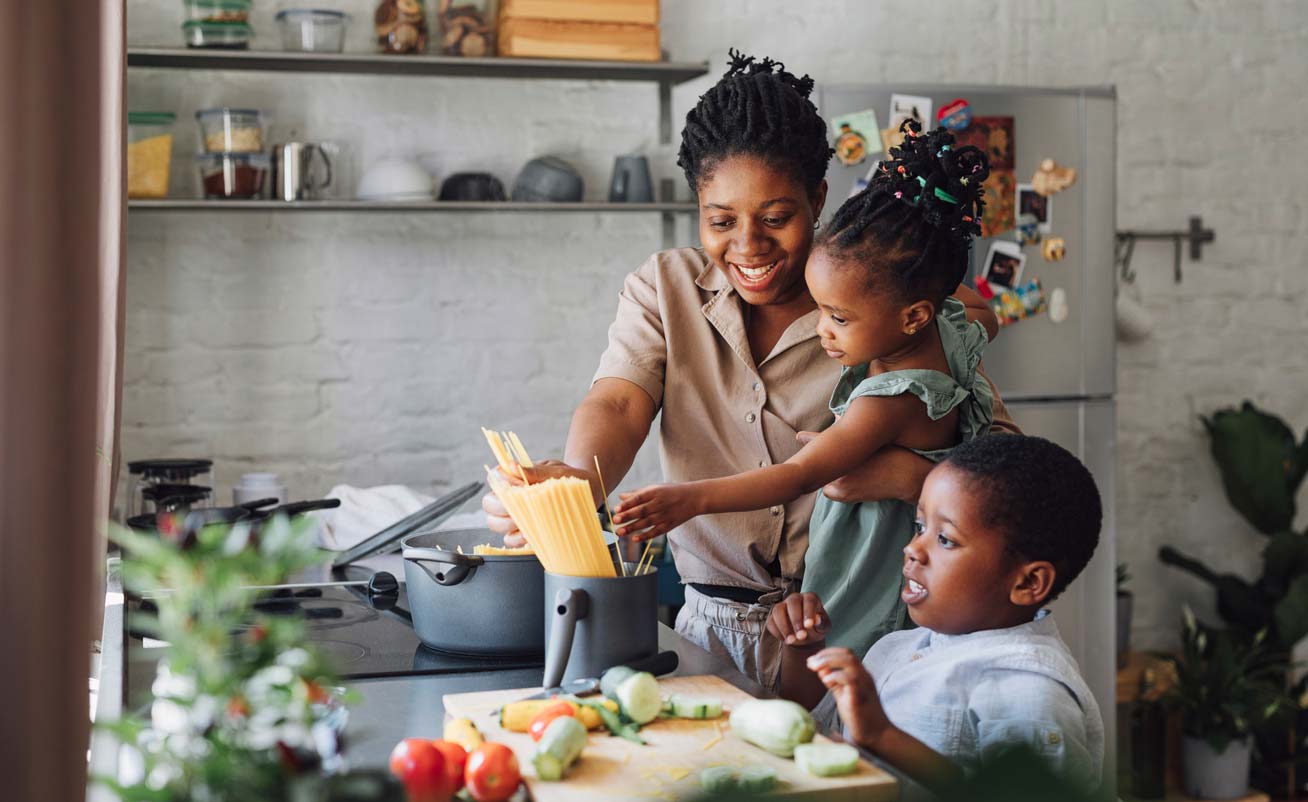
Ocean Robbins: Yes. So there are so many levels at which we can tackle this problem. And I sometimes think that we need a biodiversity of solutions because you never know quite what’s going to work. And the truth is it takes all of it. So I’m hearing you saying that we need to address the subsidies. Which, you know, tens of billions of dollars a year, for those who don’t know, in federal taxpayer money are going to subsidize commodities crops, which is bringing down the price of factory-farmed meat, high fructose corn syrup, white bread, and all sorts of junk foods. And very little of that money is reaching fruits, vegetables, nuts, and seeds — the very foods we should all be eating more of, according to tens of thousands of studies published in peer-reviewed medical journals.
I’m also hearing you say, we need to address the food desert issue. And part of how we can do that is through education and through sharing culinary wisdom that’s culturally appropriate, I would add, in all of the communities that exist.
So for everybody who thinks that when you’re just cooking something good in the kitchen that’s healthy, that’s just a selfish thing, I say: No, you’re actually preserving a cultural tradition. And hopefully, you’ll share it with other people. Because the best doorway, they say, to a man’s mind is his stomach, right? [LAUGHS]
Dr. Terry Mason: Yes.
Wholesome Wave’s Double Up Bucks Program
Ocean Robbins: So if you want to influence people, sometimes feeding them good food can be powerful work. Another thing I think we can do if we want to address the food desert issue, as well as education, is economic empowerment through, of course, resources in communities that need it. We’ve got to stop the redlining and a lot of the other historical practices that have unfairly discriminated against certain communities and people. But we can also double the value of the SNAP program for fruits and vegetables.
There’s an experiment being done around this led by an organization called Wholesome Wave. And what they’re doing is called the Double Up Bucks Program. There are 500,000 Americans right now that get double value for fruits and vegetables in almost every state. They’re testing it out. And what they’re finding is that when that happens, people buy more fruits and vegetables, demand for fruits and vegetables increases in their community; they eat more fruits and vegetables, and they’re healthier because of it. So to me, if we’re going to subsidize anything, we should be subsidizing healthy food in the communities that need it the most, rather than subsidizing the junk food industry.
Dr. Terry Mason: Yes, that was my entire point. And we were part of the Double Bucks Program when I was at the county. We actually had RX bags, prescription bags. And one of our primary care doctors, Dr. Jifunza Carter, helped to devise bags that had certain sorts of vegetables that were better for people who may have some kidney failure, people that had high blood pressure, elevated cholesterol, different things. And then, she went over those so that people walked out with a prescription that was food. And also, with a methodology to cook it, that would not reverse the good things that the food would do, but would be able to accommodate the cultural tastes that people had in a way that would not make them ill.
So, you’re right. And then, the hospital itself poured more money into the Double Bucks Program to extend it so that more people could get the double bucks.
Stopping the Programming
Dr. Terry Mason: But you’re absolutely right. These are the things that could be done. We can make good food cheap and widely available in America, and that’s what we ought to do. But at the same time, we’re going to have to stop the programming, and the programming that makes people go buy these foods that are not good for us. And the fact that nowadays, if you’ve got a 50-inch television set in your bedroom, and you happen to wake up in the morning, you could see a 50-inch burger. And so, we’ve got to start thinking about that.
And lastly, we have got to make sure that we do what we can to make sure that the good foods also taste good so that we could begin to reprogram the taste buds of our youth in a positive way.
Ocean Robbins: Yes. Good call.
COVID-19 & Comorbidities
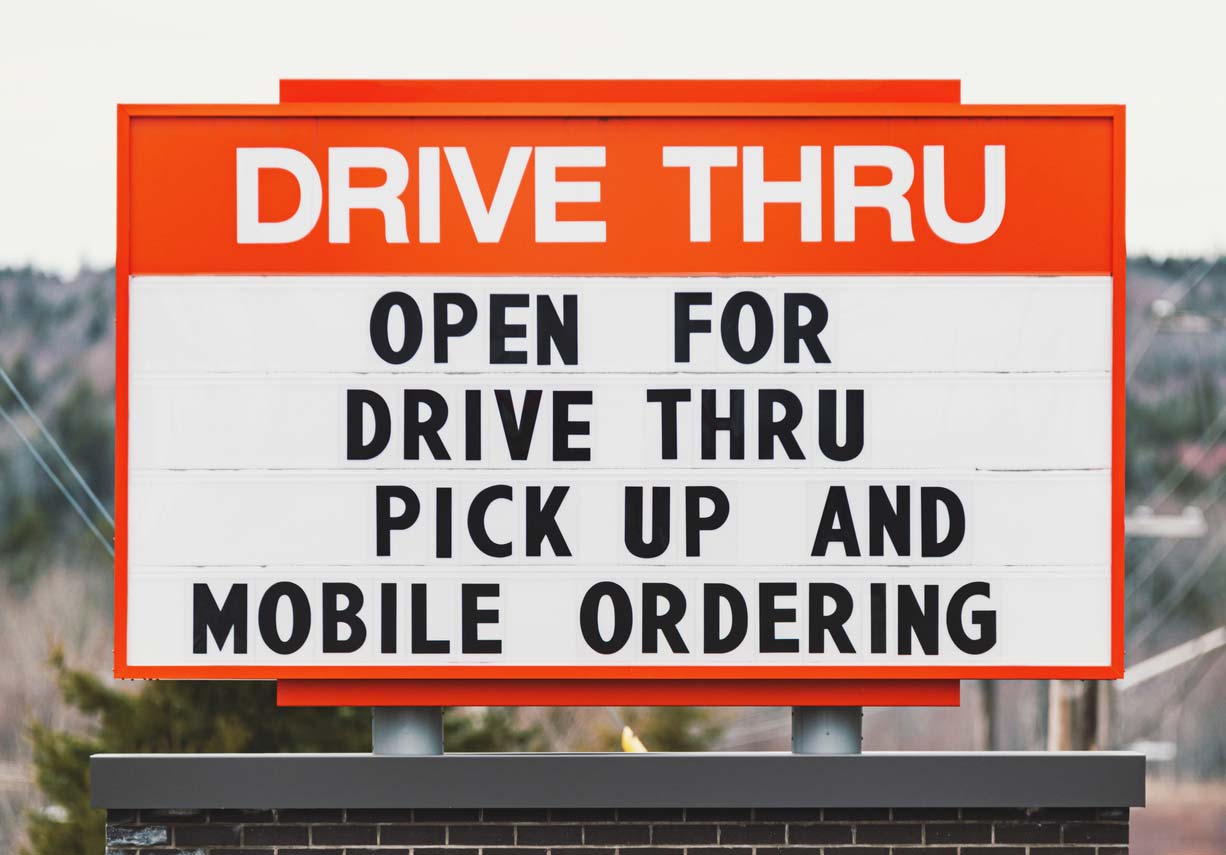
FROM THE FOUNDER OF AWAKEN.COM –
We are proud to announce a new partnership with John and Ocean Robbins and the Food Revolution to bring our readers Summits, Seminars and Masterclasses on health, nutrition and Earth-Conscious living
Sign up today for Plant Powered and Thriving
Ocean Robbins: I want to talk COVID-19 for a second.
Dr. Terry Mason: Sure.
Ocean Robbins: A CDC report analyzed more than 1.7 million US cases and 103,000 deaths. They concluded that people with underlying medical conditions like heart disease and diabetes were hospitalized six times as often and died 12 times as often as those without those underlying conditions.
Terry, do you think that comorbidities and overall health status have a major impact on COVID-19 outcome and that we should be putting more attention there as a society if we want to stop COVID-19?
Dr. Terry Mason: Yes. Basically, what we need to do is to do the things that help our bodies fight this, and to make our bodies less of a victim to the ravages of the coronavirus. And this is the thing that is difficult, and what I’m trying to get people to understand is that it’s the food. It’s the food that is inflammatory.
Inflammatory Foods
Dr. Terry Mason: And we want to call it heart disease and this and that. But what we have is system-wide vascular inflammation caused by these foods that we eat, these processed foods, these foods that are fried, these foods that have the milks and the creams and the butters. And these are the things that are causing this inflammation. Not a lot at one time, but a little bit all the time. And eventually, just as if you scrape your knee once, if you give it time, it will heal. But if three hours later, or four hours later, you scrape it again. And then, four hours after that, you scrape it again — it never heals. And that’s what we do.
We’ve been programmed to think we need to eat far more than we need to eat. We’ve made bad things that are very inflammatory, easy for us to have access to. And we have misguided information as to what causes these diseases.
So everybody thinks, or many people think, that diabetes is caused by too much sugar, when in fact it isn’t the sugar at all. It’s the saturated fat that kills these beta cells in the pancreas.
Obesity
Terry Mason: So we really do need an education program that speaks the language that people understand. And I know our commercial industries know how to do this.
The other thing is that we’ve got to have people stop believing they need to eat more. We’re eating almost 75 pounds more meat per person now than we did in 1950. And yet, the human being has not changed in terms of who we are and what we are in that same period of time, except that we’ve grown wider, not necessarily taller.
Ocean Robbins: Yes, we have grown wider. Obesity rates are now approaching 40% in America. More than two-thirds of our population are overweight. We have, I think, the dubious distinction of having the fattest population on the planet, right?
Dr. Terry Mason: Yes.
Ocean Robbins: And I think we’ve passed Mexico again on obesity rate. And, of course, this is all fueling disease.
Dr. Terry Mason: Absolutely.
Ocean Robbins: It’s not just an aesthetic thing; that’s not even the core issue. The core issue is that that’s a marker for higher risk for cardiovascular disease and type 2 diabetes, and so many other issues.
Cardiovascular Disease & Erectile Dysfunction
Dr. Terry Mason: I want to add one thing about that. Language is so important. So when I talk to people, I say, “Look, guys, if you have vascular disease anywhere, you have it everywhere.” So this whole notion that you just got some blockages in the blood vessels of your heart is wrong. If they’re in your heart; they’re in your legs; they’re in your stomach; they’re everywhere. And if you’ve got damage to these inside lining cells, these endothelial cells, anywhere in the body, you have them everywhere. I learned that while I was in practice treating erectile dysfunction.
And there’s a journal article published in JAMA, I think in 2009, that actually correlates the clinical onset of certain diseases with erectile dysfunction. And they found that men who complained of erectile dysfunction went on to have heart attacks and strokes. Why? Because it’s all the same disease.
So what we have to do is we have to change this language because it confuses people. And we need to talk about how ubiquitous these diseases are everywhere. So when you get a blood clot, or you get a blockage of blood flow in your leg, that’s not different from the blood flow to the heart, or that’s not different from the blood flow to the brain. It’s the same process caused by the same thing.
We don’t need different solutions. We need the only real solution that we have, and that is to reverse these things by eating just the opposite of the foods that cause them.
The Impact of a Plant-Based Diet on African American Health
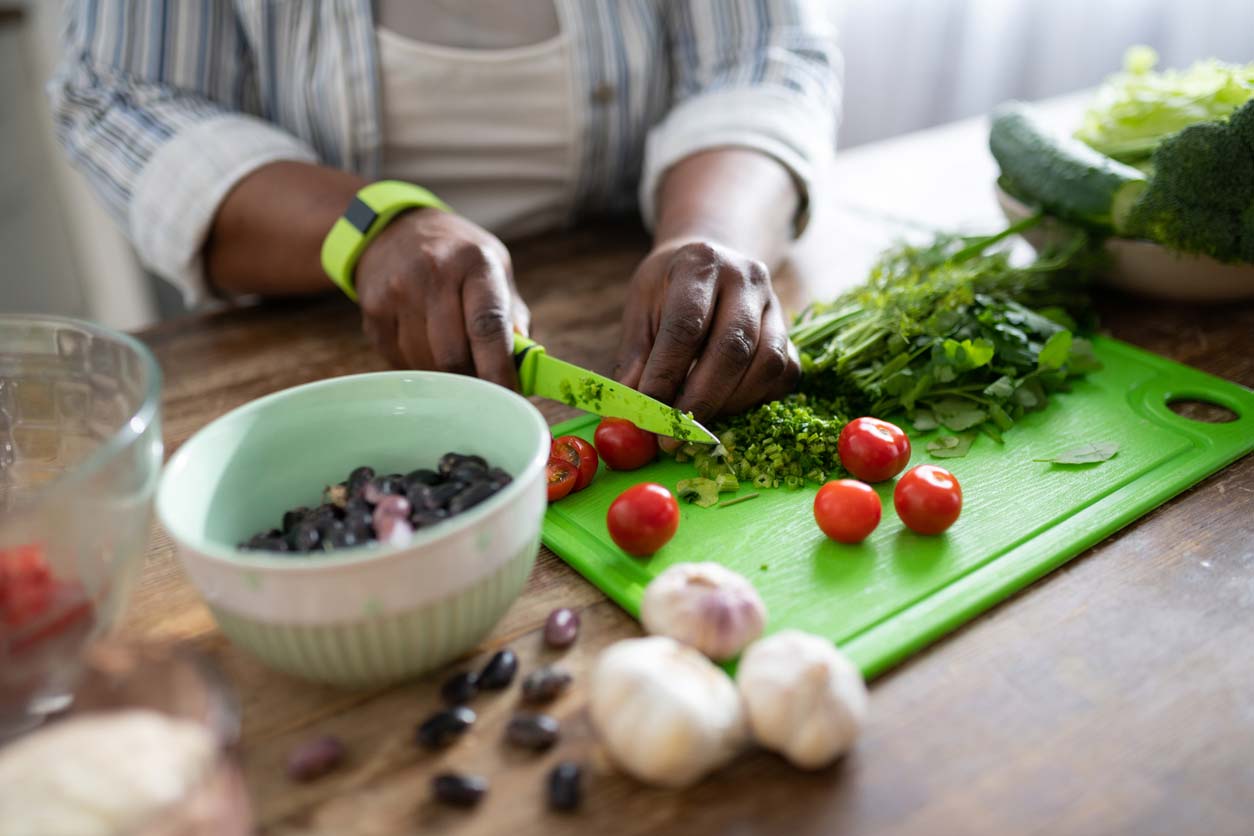
Ocean Robbins: Yes. Well, hear, hear to that. You were one of the authors of a study conducted by researchers at Rush University. And the study was looking at vascular health. And it tracked, I believe, 44 African-Americans. Some of them were given a plant-based diet for five weeks. Can you tell us what happened in the study? And what did we learn from it?
Dr. Terry Mason: Well, Dr. Kim Williams was the professor and chair of cardiology at Rush University Hospital and the past president of the American College of Cardiology, who’s always been very, very community-focused. And I said, “You know, I’d really like to think about how we can begin to prove that Black people can improve.” We always hear about how bad we are, but we never talk about how we improve.
So we designed a small study. Actually, because of funding, it was small. We’re actually now in the process of trying to get more money to do a much bigger study. So we could only take about 50 people. And our church had well over 5,000 people that attended. And just before I got the announcement out for the first service, we had 200 people in the room wanting to sign up.
And what we did was we contracted with a company so we could make sure everybody had an isocaloric diet.
Participants were getting food deliveries, and they were supposed to only eat what they got delivered to them. But we told them, if you don’t, if you cheat, just write it down.
Ocean Robbins: Yeah.
Improvement in Health Markers
Dr. Terry Mason: And people were very compliant. And we also did a bunch of biometric measurements. We measured particularly inflammatory markers, like trimethylamine N-oxide (TMAO), which does a lot of damage and has now been implicated in cancer and everything else. We had a lab that we send the blood for the pre- and post-TMAOs, as well as the lipoproteins. And we assessed cardiac risk, and insulin levels, and everything else.
What was the most startling thing is that the TMAO dropped 41% in five weeks. In five weeks, just on a dietary change.
Ocean Robbins: Wow.
Dr. Terry Mason: Forty-one percent. There’s no medicine out there that can do that. And the other markers dropped too. The low-density lipoproteins, the C-reactive proteins, all of these things.
And what we’d like to do is we’d like to get 200 people to do this because we need more power in the larger numbers. But it just goes to show you. And people were astonished. And my motivation was to show that… Because we never saw information like this on the African-American population. We always see the bad stuff.
And here is something that shows that, “Hey, good things can happen when we do this. And when we change what we eat, we can change our internal biochemistry, which then changes our life and gives us a new lease that we didn’t know existed before.”
And this is not just our opinion. I always say, in God we trust; all others must have data. So this was the data. And right now, we are in the process of trying to recruit some other folks to help raise the money we need for a larger study. It looks like it’s going to take us about 1.5 million dollars to do the study in the way that it really needs to be done.
Saving Trillions on Healthcare Costs
Dr. Terry Mason: And I just spoke to one of our senators. I’m like, “Guys, you’ve got to shake some money loose from someplace because what we’re telling you is you don’t know how much we could save in pharmaceuticals, hospitalization, surgeries, and what have you, if we began to get this message out. Now, some of your donors may not like it because we’re going to be talking about the causes of this.” For the rest of my life, I cannot be engaged in just prescribing pills. That’s why I quit conventional medical practice.
Ocean Robbins: Yeah.
Dr. Terry Mason: I have to give people what they need to reverse the disease.
Ocean Robbins: How much do you think we might be able to save if we truly made food the foundation of health in the United States?
Dr. Terry Mason: I would say, if we got really serious about it, not all at once, but I think that we could comfortably say we’re spending about three trillion dollars now. We should be able to cut that in half.
And the fact that we’re spending three trillion dollars is a great cartoon. I don’t know if you’ve ever seen it. It’s a picture of a sink. And the sink is stopped up. And the water is running. And the water is running over the sink. And you got a bunch of guys in a room with mops trying to mop up the water. But nobody goes over to turn the water off on the sink or to pull the stopper out.
And I’m saying that we’re spending three trillion dollars on basically mopping efforts. If we really wanted to get serious about this, we could spend less than half of that if we just pull the sink stopper out and turn the disease off. And how do we do that? We do that with changing, using the power of our advertising machine to start getting people to eat the right things.
Ocean Robbins: Yeah. It’s pretty stunning, if you think about it, that we could save, according to that estimate, 1.5 trillion dollars per year. That means in about 18 years, we could repay the entire national debt. We could create a kind of utopia with just those savings. Seventeen percent of gross domestic product in the United States, maybe more, goes to medical care or disease symptom management. And yet, people say we can’t afford healthy food. Well, individuals can’t when the subsidies are stacked against them and when the whole economic system is stacked against them.
Saving the Environment in the Process
Ocean Robbins: But if we were serious about valuing health and human welfare, we could make so many good things happen.
Dr. Terry Mason: Not only that, but do you know what we do to the environment? Because now we wouldn’t be killing all these animals; we wouldn’t need to grow all these animals; we would be able to stop the methane that’s coming from these animals that are contributing the greenhouse gases. You know, more greenhouse gases come from that than from all of the transportation, cars, planes, boats, trucks, combined.
Ocean Robbins: Yeah.
Dr. Terry Mason: So we could literally clean our air in a generation.
Ocean Robbins: Yes. More than 80% of the Earth’s land, of agricultural land service, is being used for animal agriculture. For 17% of our calories. So yeah, tremendous savings possible there.
Lactose Intolerance
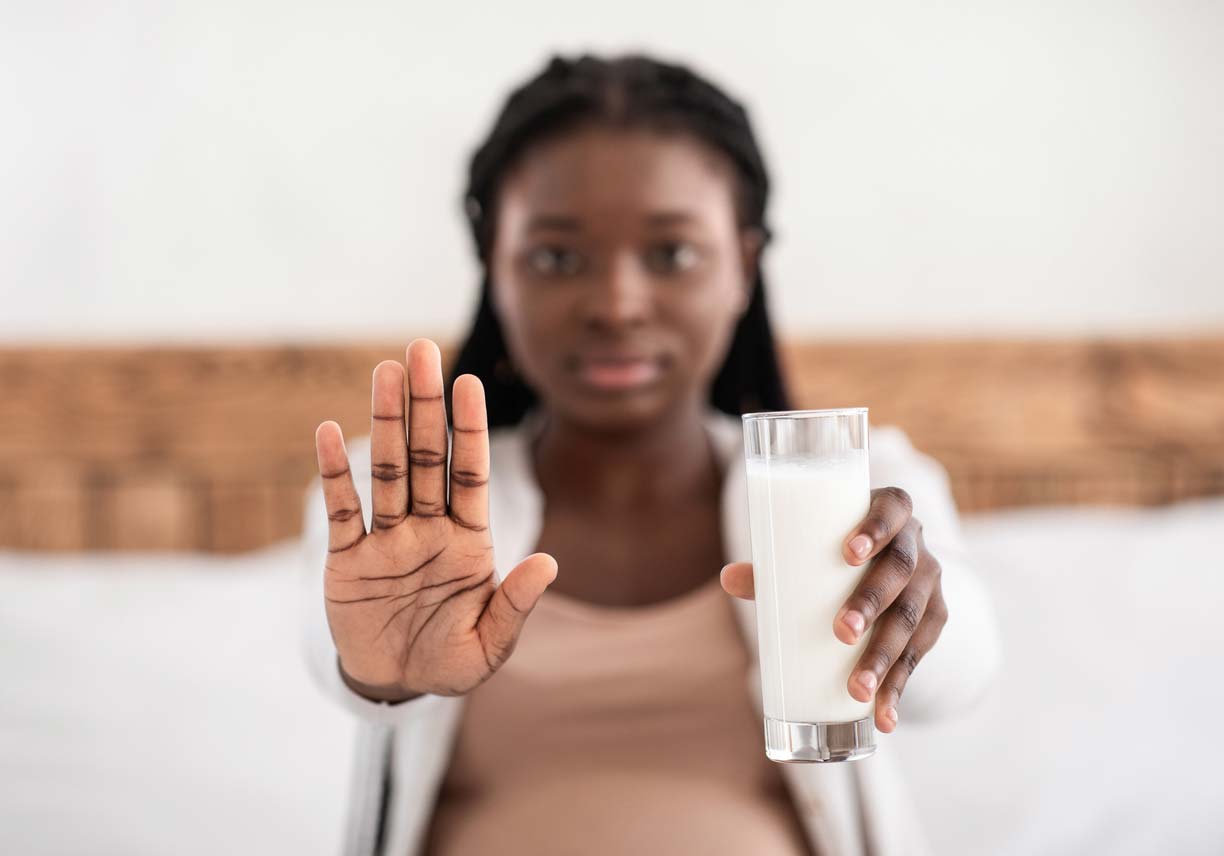
Ocean Robbins: I want to turn to another kind of more specific topic, which is lactose intolerance. It affects 65% of humanity, the vast majority of whom are people of color. And yet, milk is advertised as nature’s most perfect food. Of course, it is for a baby calf, but not necessarily for humans. Do you think that our milk and dairy obsession is, in any way, functionally, an expression of racism?
Dr. Terry Mason: Well, you know, that’s a great question. And the fact is that there are some people that are not Black that are also lactose intolerant, but far fewer.
I happen to be a lactose intolerant person. And I didn’t even know what it was, and my parents didn’t know what it was. I just know that whenever I tried to eat certain things, I would end up in the bathroom. So I think that the fact that we’re not being aggressive to do something about it is racist.
And I have to commend guys like Neal Barnard. We went to the AMA a year or two ago, where they were trying to say that lactose intolerance was a disease. And we said no, it’s not a disease. There’s nothing wrong with people who are lactose intolerant other than they rightfully do not have the enzyme to break down milk that does not come from their human mother.
Breastfeeding & Milk Consumption Past Infancy
Dr. Terry Mason: We talk a lot about how cow milk is the absolute perfect milk for baby cows. Because we had a huge breastfeeding campaign in the Department of Public Health that we championed. And we had marches, and we had parades to celebrate women who choose to breastfeed and to give them the support that they need to do that and to create spaces in all of the businesses. We call the rooms the Milky Way rooms so a woman could go and breastfeed her child, or pump her breasts, to get the milk that her child needs. And we need to make that a national practice and to make it far more comfortable for women to breastfeed.
Ocean Robbins: Yes. Humans are the only species on Earth that drinks milk past infancy, though. And we’re also the only species on earth that drinks the milk of another species. So although consumption of milk from other bovine lactating mammals has been normalized in our society, it is, from an evolutionary perspective, perhaps a little bit odd.
Black Veganism & Vegetarianism
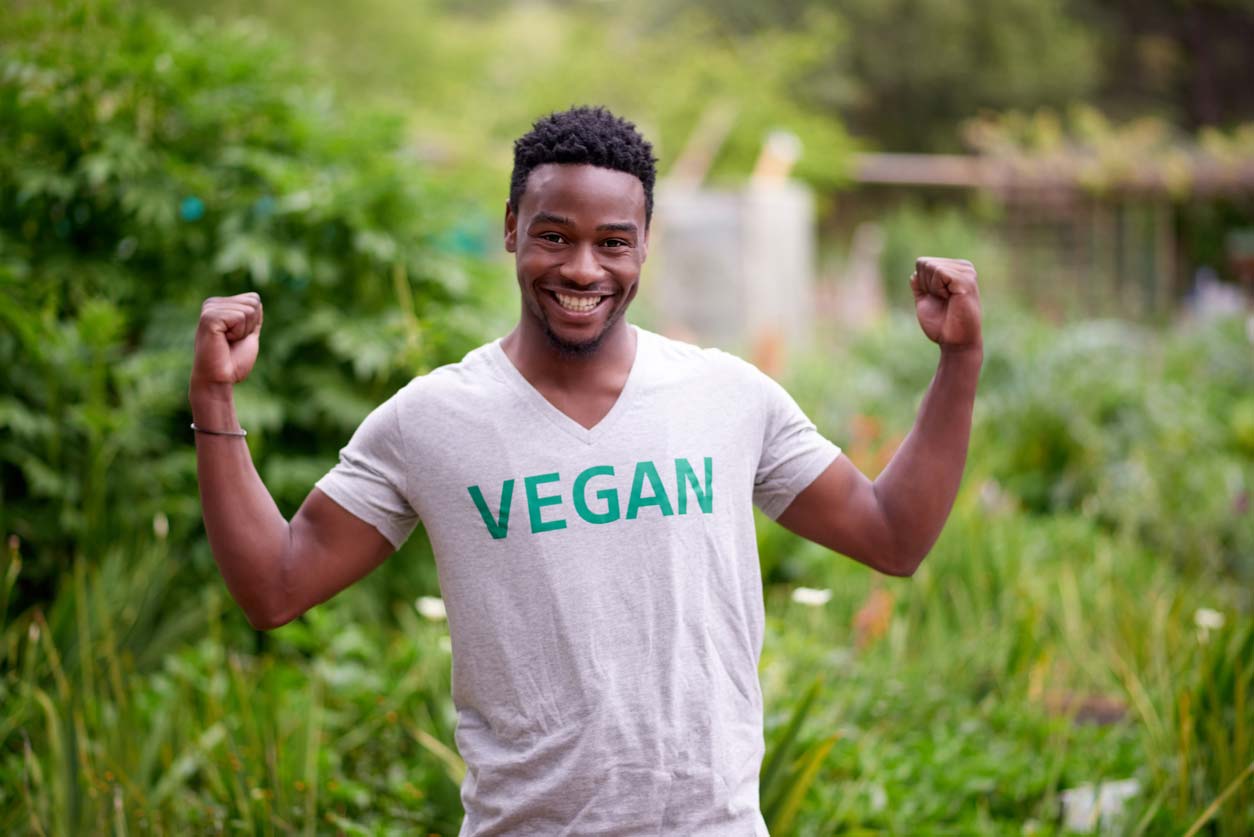
FROM THE FOUNDER OF AWAKEN.COM –
We are proud to announce a new partnership with John and Ocean Robbins and the Food Revolution to bring our readers Summits, Seminars and Masterclasses on health, nutrition and Earth-Conscious living
Sign up today for Plant Powered and Thriving
Ocean Robbins: There was a recent poll that found that 3% of Americans identified as vegans. Eight percent of Black Americans, however, identified as vegans. Another poll found that 31% of people of color in the US say they’re eating less meat intentionally, compared to 19% of white respondents who said they were eating less meat intentionally.
Can you shed any light on why you think it is that so many Black people and people of color in the US are moving away from animal products at a dramatically higher rate than white folks are? Any sense of the cultural elements of that, or what’s making that happen?
Dr. Terry Mason: I think it’s a number of things. We’re seeing more of some of the celebrities who are vegan. I mean, I was with one of the basketball players who is a vegan and talks about it. We see more of these iconic people who are openly vegetarian or vegan. We’re hearing more about this than we used to hear.
Look at the movies that have come out. Everything from Forks Over Knives to Diet Fiction to The Game Changers — all of these things that have helped to change the psyche. And Game Changers, especially, because men were probably the most confused around what being a plant-based person will do or not do. But when you look at a guy like Rich Roll, who is an ultra-athlete, who does these amazing athletic feats, or the strongest man in the world who is lifting untold pounds of weight, almost a ton — you can’t argue with it anymore.
And I’m just grateful to all those people that produced these films for us because some people get things in different sorts of ways. And certain kinds of genres are better than others. But I’m just so happy to see this because I’ve been able to see this transformation in a very short period of time.
Advocating for Accessible Health
Dr. Terry Mason: So, this is good, Ocean. This is good. I just thank God for what you guys do and to make this information so easily available in language that people can understand is absolutely amazing. And I thank you for it.
Ocean Robbins: Well, thank you so much, Terry. And I thank God for the work that you do.
You know, in a sense, you retired from medical practice because you didn’t want to push drugs and surgery, and you wanted to advocate for health. But your work as a healer was just beginning.
Mother Carr’s Farm
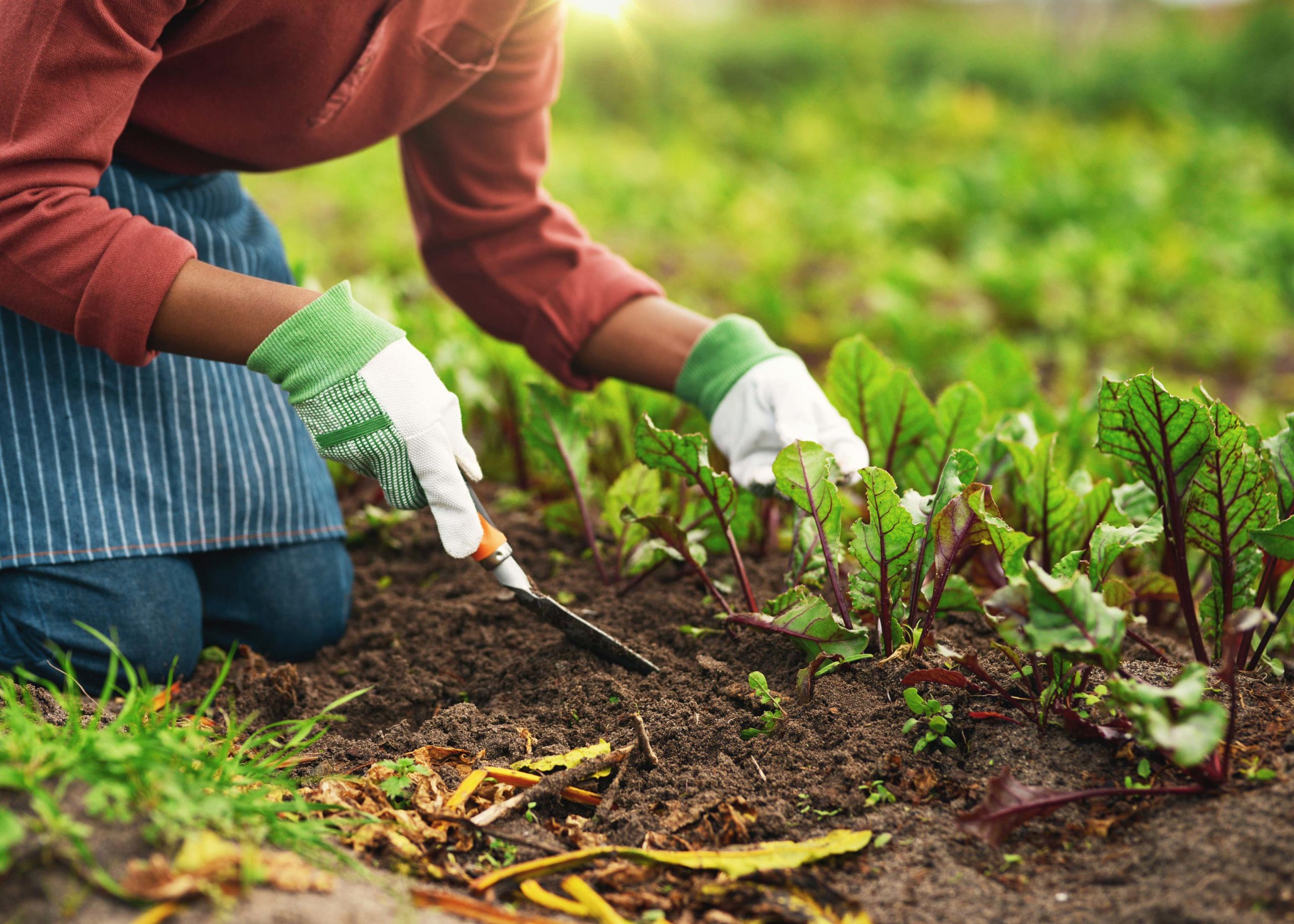
Ocean Robbins: I understand that you and others acquired farmland that you’re using to grow food for distribution in underserved neighborhoods in Chicago. I also understand you’re employing folks recently released from prison who served time for non-violent offenses.
Can you tell us about this project, what you’re aiming to achieve, and how it’s going?
Dr. Terry Mason: First of all, thank you for asking. It was an outgrowth of a project led by a pastor by the name of Dr. Gerald January from a church called The Church of God. And it’s a thing that started out as a small garden of one of its parishioners — Mother Carr is what they called her.
They’ve subsequently moved from their old church to a new site that’s 76 acres of land that the church acquired. They were going to build a much bigger sort of commercial park with things like Starbucks and all that sort of stuff, but for a number of reasons, that didn’t happen.
So, they decided to use a little bit more of the land for what was called Mother Carr’s Farm. And we went from just maybe an acre or so. And over the last year, we doubled the space that we had because it got up to like nine, and now we’re almost at 18 acres. Last year, for the first time, we actually grew watermelons. We had about 300 watermelons that we grew, both red and yellow meat watermelons, in addition to our kale, our Swiss chard, our radishes, our onions. We have our own bees. We had almost 20 gallons of organic clover honey.
Enriching the Lives of Underserved Communities
Dr. Terry Mason: We have a wonderful farm manager. His name is Mr. Anthony Williamson, who has done all of this without using any pesticides, no chemicals of any sort because of the richness of this soil that this church bought, which was an old farm. And the nutrients were still there. And we’re in the process now of putting manure and other things to sort of replenish some of those nutrients.
Our plan is to build this up. We want to double it again. And we’d like to eventually, within a year, hopefully, get up to half of the capacity that we have.
The young men that we brought out are what we call returning citizens. This has made such a difference in their lives. And we’re actually now trying to figure out how we might be able to get some temporary trailers with some solar power to provide them a place to live while they’re there. And we also bring in some of the troubled teens from the schools in the southern suburbs that have had some brushes with authority.
None of these folks had ever even seen a farm or even been involved with picking food.
CSA Boxes
Dr. Terry Mason: We sell shares in this. So a full share is $450 for the growing season. That allows you to get a box that is usually somewhere, without the watermelon, somewhere around 12 to 18 pounds of fresh vegetables. And those vegetables are picked on Friday. And they’re picked up on Saturday. So, they never see a refrigerator. Just take it out, and we put a little water on it, and just a little ice, and people come up the next day and pick it up.
Ocean Robbins: And that’s a box every other week throughout the growing season.
Dr. Terry Mason: And whatever we have. And that includes honey and whatever else is there. It’s picked, and it’s picked up. Our plan is to try to raise money to buy more farm equipment to make it a bit more efficient as well as to create a place where we can do some degree of post-processing. Because we now have demand from the restaurants.
We took some of the food to a few of the restaurants, and it’s amazing. They would pick some of this stuff on Friday. And on Friday evening, these vegetables would be on the plates of people in these restaurants. And they didn’t understand why this tasted so different. And it tasted so different because it had never been stored in a refrigerated place. One buyer went from just testing it out to buying over 350 pounds of kale from us every week.
Ocean Robbins: Wow.
Restoring Human Dignity & Health
Dr. Terry Mason: So, we’re really, really trying to expand both our commercial business, but we also want to reach out to our seniors. We’re trying to create a delivery service so that they don’t have to drive. It’s a bit of a drive to come out to the farm. We’re working with some people to create some drop-off points.
And we’re also working on getting more farm implements and on being able to bring and hire… Because we want to pay these young people a livable wage. We want them not to have to sleep out in a trailer. We want them to have enough money to be able to rent a small apartment and to feed themselves. And so that’s the other part of what we’re trying to do. And we started a GoFundMe page.
Ocean Robbins: Well, it’s a labor of love. And I’m thinking about the ripples this sends out. When I think about those 350 pounds of kale, when I think about those CSAs, every single box that you’re delivering equals fewer heart attacks, fewer people living in misery, fewer kids losing their parents too young.
Every box you’re delivering also represents more people employed who otherwise might have been on the streets doing who knows what. It means more human dignity restored. And it also means more regeneration of our soils. Land that might’ve been fallow is now growing food which, when well managed, can sequester carbon, can become a part of the solution on Planet Earth. So it’s like everywhere you look, you see these ripples of goodness and health and wellness flowing from this one simple act.
Vernon Park Church of God
Ocean Robbins: So, if people want to get involved, do they Google to find it?
Dr. Terry Mason: Just go to Vernon Park Church of God, and everything is right there. They can see pictures of the farm. We didn’t have money this year, but we wanted to try and get a little movie so that we could put it up on the website. We’re trying to raise money for our tractor so that Tony and the guys can do their work far more efficiently than they’re doing it now.
Our goal over the next year or two is to raise enough money to put in our own little greenhouse, so we can do all our starter plants here rather than have to drive and cart them all the way back from Champaign.
Ocean Robbins: Beautiful. So, for everybody watching — please pitch in if you can.
Healthy Food for All
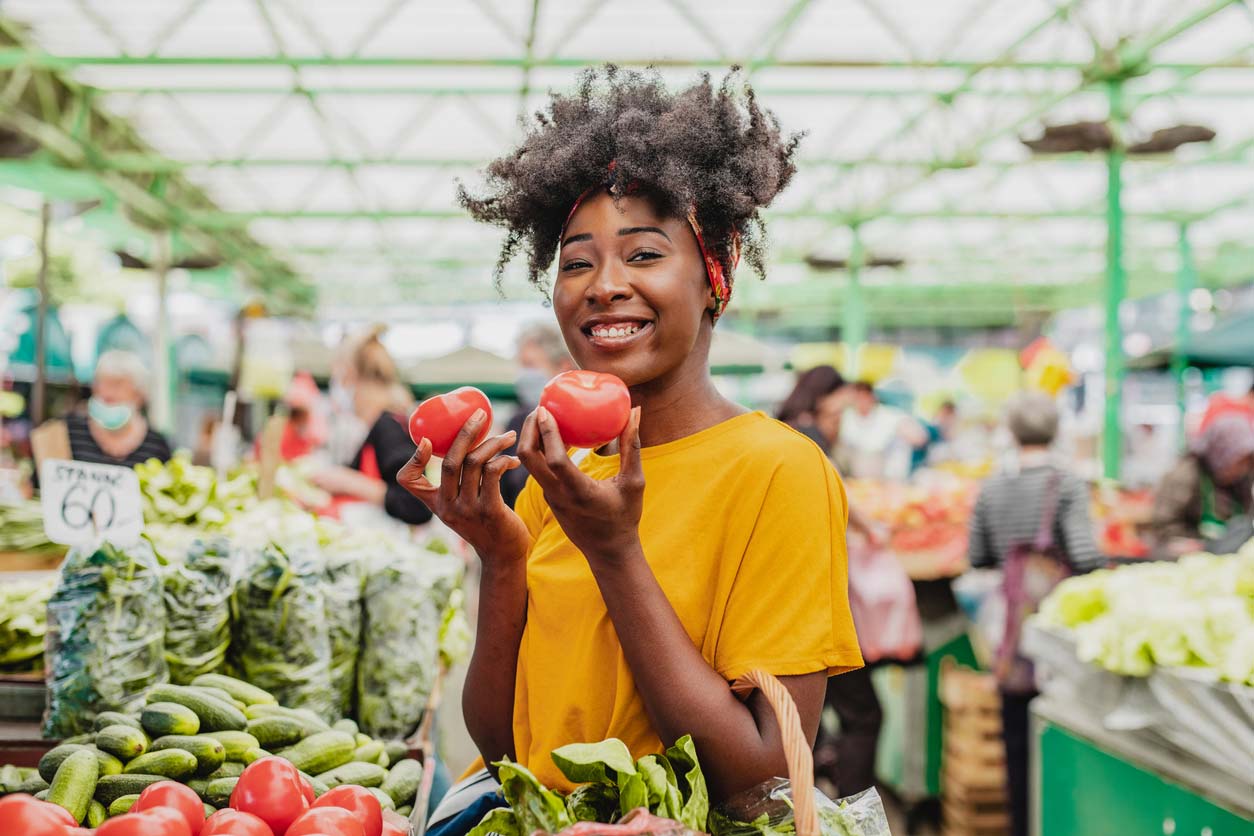
Ocean Robbins: Terry, it’s been such a privilege talking with you and sharing this time. I’m so grateful that your waiting room essentially expanded to include all of humanity and the whole planet.
Dr. Terry Mason: [LAUGHS]
Ocean Robbins: We’re all grateful for what you’re doing. Thank you so much for your wisdom. Thank you for your leadership. Thank you for your courage. And thank you for walking the talk. Who knew that when you were healing your own heart and your own cardiovascular system years ago, you would be having epiphanies that would change, fundamentally, everything you do in your life.
Dr. Terry Mason: [LAUGHS] Yes.
Ocean Robbins: And now, you’ll be helping so many other people.
Dr. Terry Mason: Well, I so want to thank you, Ocean, for what you and your publications and your conferences, you know… It’s just wonderful, and I’m so grateful. You’re the reason why we have more people that are eating vegan. And the people that you bring on, and the programs that you produce, those are the reasons why we have more people who are choosing to love life more abundantly by eating the things that we were designed to eat. And I thank you for it.
Ocean Robbins: Why thank you.
We’ve been talking with Dr. Terry Mason. And thank you so much, everyone watching, for your time, for your attention, and for your participation with us in this food revolution.
FROM THE FOUNDER OF AWAKEN.COM –
We are proud to announce a new partnership with John and Ocean Robbins and the Food Revolution to bring our readers Summits, Seminars and Masterclasses on health, nutrition and Earth-Conscious living
Sign up today for Plant Powered and Thriving







